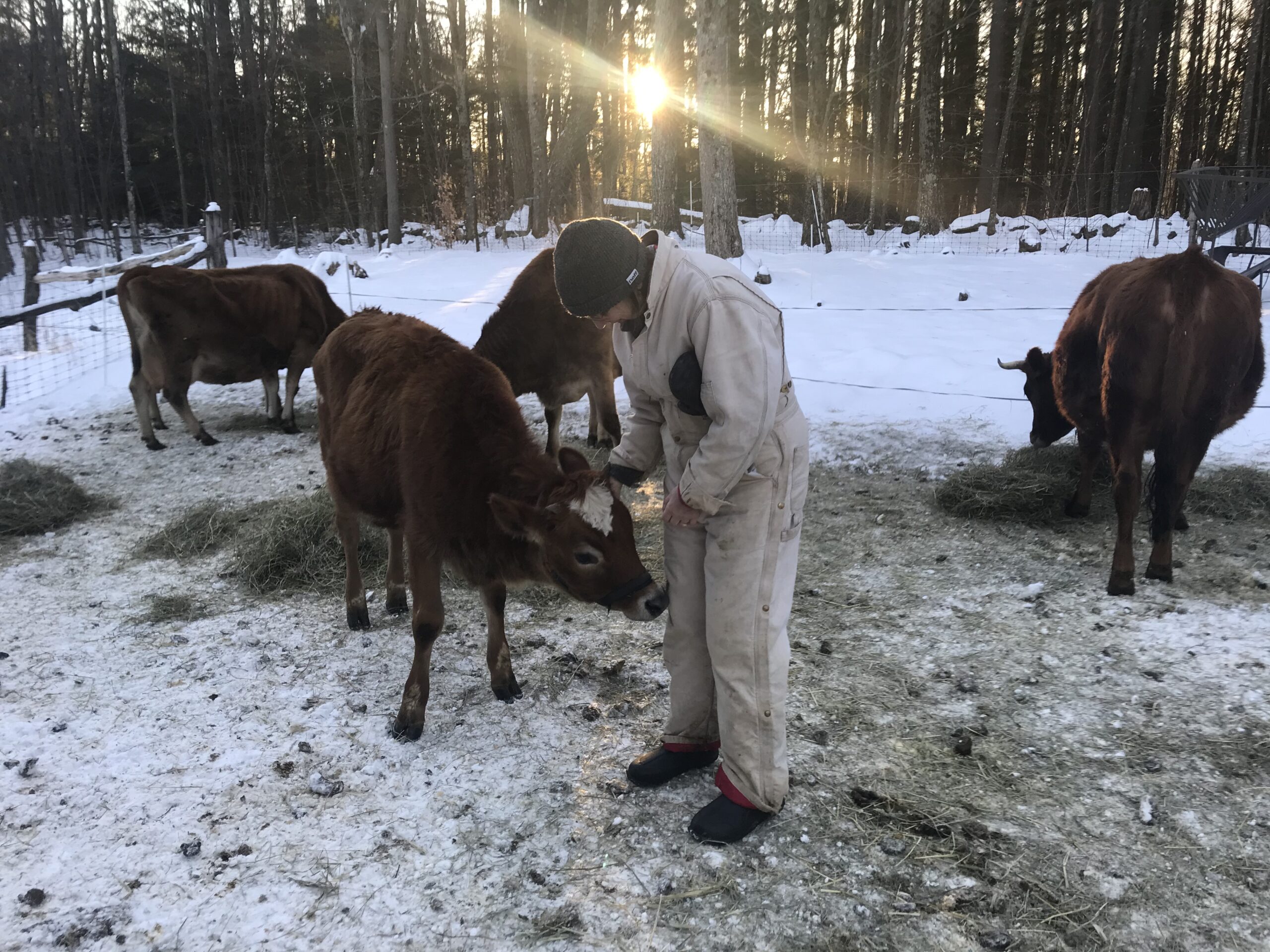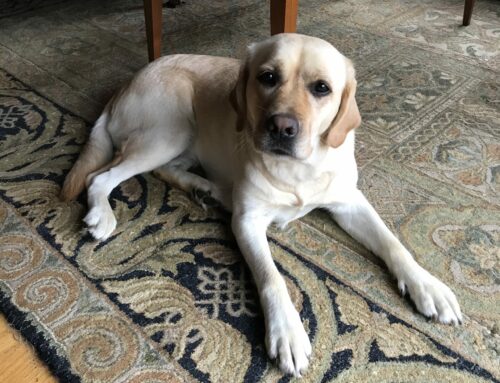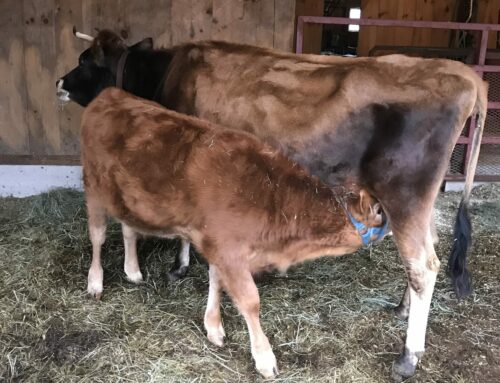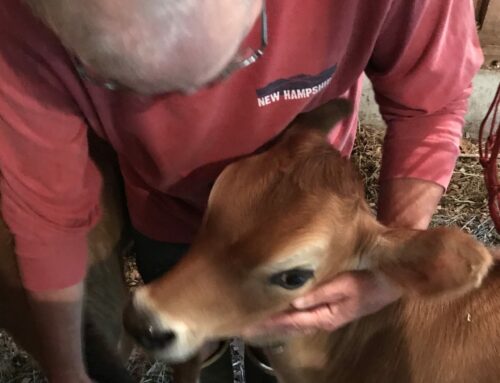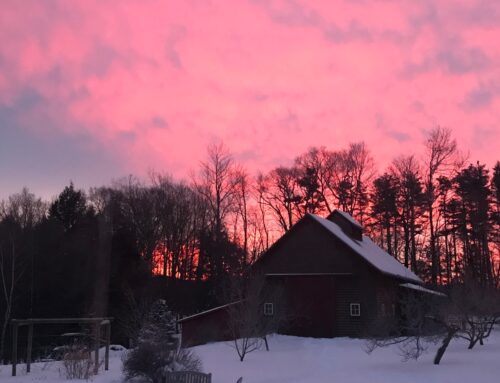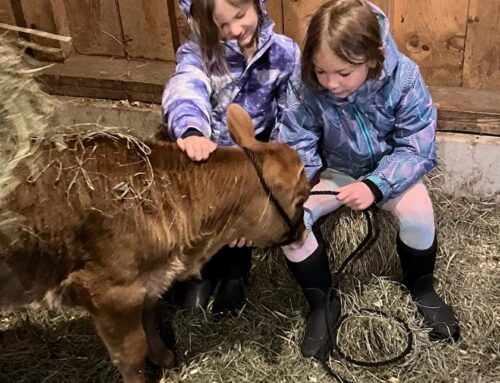That is the question I ask myself each fall, (the traditional time for animal harvest) as my husband and I we prepare to harvest a cow, or a pig, or a chicken on our farm. We have a micro-dairy, Callie’s Creamery, and provide raw milk and wholesome, grass-fed, organic yogurt for our local community. It is a wonderful thing to make our way together to the barn every morning at daybreak to milk and care for our small herd and various other farm animals. To be able to witness the sunrise throughout the seasons intimately connects me with the natural world. I hope to be able to make this purposeful trek every day for the rest of my life. Yet, the harsh reality on a working farm is that animals have a purpose, be it milk, meat, eggs or some combination.
At Callie’s Creamery, each time an animal has reached its time to go, it is a solemn occasion filled with gratitude and love. We are fortunate to have local support to do this deed humanely on our farm. It is an awesome responsibility to decide the fate of a living creature. Each time we do so, I question my decision to be a meat eater. And yet, I cannot imagine my life without cows and their barnyard companions.
When I was twelve, I first became a vegetarian because I was horrified by my best friend’s father hunting deer and serving it to his family at dinner. As a child, at my family’s dinner table, I could not sustain being a vegetarian. However, when I was 19 and on my own I made the shift, no more meat for me, on moral grounds. Struggling with anemia during my first pregnancy, a decade later, I once again began to eat meat. As our family grew, my husband and I began to grow our own food. We started with a robust vegetable garden. Then we decided that we only wanted to serve our children meat that we were certain was humanely raised and free from all chemicals. Therefore, first we added a flock of chickens and then a pair of pigs annually to our small farm.
In time, we bought a family cow with the intention of milking her to provide wholesome raw milk for our family and friends. We soon discovered that you cannot produce milk without producing more cows. To have milk you must have a lactating cow, and to have a lactating cow she must have a calf approximately once a year. About fifty percent of her calves would be male, and therefore couldn’t produce milk. The economic solution has been to turn young males into food; we simply cannot afford to keep them solely as pets. We do allow the calves to nurse and be with their mothers for at least a year before they are harvested, and “mom” has a new calf for which to care.
Back to where I started, how can I be a dairy farmer, and have deep and satisfying relationships with farm animals and the natural world without facing death? How can I choose to kill an animal I love? I believe that choosing to eat an animal’s meat is a way of honoring its life. I have reconciled myself with this life cycle. Not because it is easy, or even really understandable, but because I cannot imagine my life or the New England landscape without cows. Their presence on the land enlivens it, their manure fertilizes our gardens, gazing upon them as we pass by pastures gives us a sense of tranquility, and being lucky enough to interact personally with these great creatures settles my soul.

